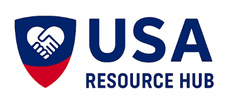Raising children on a single income is never easy, especially when unexpected expenses or job loss hit. Fortunately, there are targeted financial support programs designed to help single parents cover essential costs like food, housing, education, and medical care. Whether you’re newly separated, widowed, or navigating parenthood solo, this guide breaks down how to access monthly cash aid, school subsidies, and emergency funds, plus where to find medical aid for single parents.
What Is Cash Aid for Single Parents?
Cash aid refers to direct financial support provided by federal, state, or local programs to help low-income families meet basic needs. For single parents, this aid is often tailored to reflect the unique challenges of managing a household alone, including:
- Monthly stipends for food, rent, or utilities
- One-time emergency grants for crises like eviction or job loss
- School-related subsidies for uniforms, supplies, and fees
- Medical aid for single parents, including coverage for prescriptions, checkups, and urgent care
These programs are designed to reduce financial stress and improve outcomes for both parents and children.
Who Qualifies for Single Parent Cash Aid?
Eligibility varies by state and program, but most require:
- Proof of single parent status (e.g., custody documents, divorce papers, or death certificate)
- Income below a certain threshold, often based on household size
- U.S. citizenship or legal residency
- Children under 18 living in the household
- Willingness to participate in work, training, or parenting support programs (in some cases)
Some programs also prioritize applicants facing domestic violence, homelessness, or disability-related challenges.
Monthly Support Programs to Explore
Here are some of the most common sources of monthly cash aid for single parents:
- Temporary Assistance for Needy Families (TANF) Offers monthly cash payments and support services. Administered by each state, TANF also includes job training and childcare assistance.
- Supplemental Nutrition Assistance Program (SNAP) Provides monthly grocery benefits via an EBT card. Eligibility is based on income and household size.
- Housing Choice Voucher Program (Section 8) Helps cover rent costs for eligible families. Waitlists may apply, so early application is key.
- State-specific family assistance programs Many states offer additional monthly stipends or utility support for single-parent households.
School Subsidies and Education Support
Education-related expenses can add up quickly. These programs help ease the burden:
- Free or reduced-price school meals Available through the National School Lunch Program. Apply through your child’s school.
- School supply grants and uniform vouchers Offered by local nonprofits, school districts, and community centers.
- Head Start and Early Head Start Provide free preschool education, meals, and health screenings for children from low-income families.
- State education grants Some states offer cash aid for school-related costs, especially for families affected by job loss or medical emergencies.
Emergency Funds and Crisis Support
When unexpected events strike, emergency aid can make the difference between stability and crisis. Look into:
- Local emergency assistance programs Many counties and cities offer one-time grants for rent, utilities, or transportation.
- Faith-based and nonprofit organizations Groups like Salvation Army, United Way, and Catholic Charities provide emergency cash aid and referrals.
- Medical aid for single parents Programs like Medicaid, CHIP, and community health clinics offer free or low-cost care for children and parents. Some states also provide emergency medical grants for uninsured families.
How to Apply
Follow these steps to access support:
- Gather documentation You’ll need proof of income, custody, residency, and identification.
- Visit your state’s benefits portal Use benefits.gov to find and apply for federal and state programs.
- Contact local nonprofits Many offer application assistance, referrals, and bilingual support.
- Apply early and follow up Some programs have limited funding or long waitlists. Submit complete applications and check back regularly.
Common Mistakes to Avoid
- Missing deadlines or required documents Incomplete applications are often denied or delayed.
- Not exploring local options State and city programs may offer faster or more flexible aid than federal sources.
- Assuming you don’t qualify Even moderate-income single parents may be eligible for school or medical subsidies.
- Failing to renew benefits Many programs require periodic re-certification. Mark your calendar to avoid gaps in support.
Cash aid for single parents is a lifeline that helps families stay housed, fed, and healthy. Whether you need monthly support, help with school costs, or emergency relief, there are programs designed to meet your needs. By applying early, staying organized, and exploring all available options, you can reduce financial stress and focus on what matters most: raising your children with stability and care.


Leave a Reply